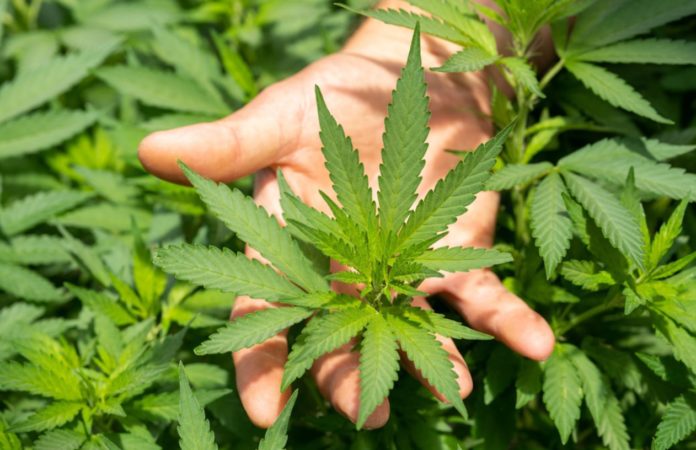Epileptic kids in small cannabis study have 86% fewer seizures
The incidence of epileptic seizures decreased by an average of 86 percent among ten children treated with whole-plant medicinal cannabis, according to a case study published in the open access journal BMJ Paediatrics Open.
Other medications, including the only cannabidiol (CBD) substance approved for their disease, had failed to help any of the kids.
The findings compel the researchers to pursue more research into the therapeutic potential of whole plant medicinal cannabis products.
According to the experts, substantial anecdotal data on the efficacy of medicinal cannabis for treating childhood epilepsies has been gathering since the 1800s. However, there isn’t a lot of recent scientific evidence about the efficacy of whole plant cannabis extracts.
Tetrahydocannabinol, or THC for short, is the principal active element in cannabis and is responsible for the ‘high’ associated with recreational use, as well as cannabidiol, other neuroactive cannabinoids, and compounds like terpenes.
The Agriculture Improvement Act was passed and signed into law by the United States Congress in 2018. This bill repealed the federal Controlled Substances Act, essentially legalizing CBD derived from hemp.
There are still a few states that haven’t removed hemp from their state’s list of controlled substances. This means that the legality of CBD products varies from state to state.
But in other parts of the world, like the United Kingdom, both recreational and medical cannabis were made illegal under the Misuse of Drugs Act 1971. This meant that cannabis research in the country largely stopped.
In 2018, medicinal (whole plant) cannabis was designated as a prescription medicine for the treatment of severe childhood epilepsy, prompted by parents whose children had responded well to whole plant medicinal cannabis extracts but not to conventional antiepileptic drugs or purified cannabidiol (CBD oil).
However, doctors in the United Kingdom have been hesitant to give it to children with severe epilepsy, owing to a lack of confirmatory clinical trial results.
The National Institute for Health and Clinical Excellence (NICE), which advises the English health service on which treatments and therapies to use, has accepted that real-world data, such as case series, are valid sources of evidence, especially where clinical trials are difficult to conduct, such as in children.
In light of this, the researchers examined the use of whole plant medicinal cannabis in ten children with severe epilepsy who had failed to respond to conventional treatment, including two who had failed to respond to the only pharmaceutical-grade, purified CBD oil licensed for the condition in children (Epidyolex).
The team wanted to determine the percentage change in monthly seizure frequency and the effect of medicinal cannabis on changes in the use of conventional epilepsy drugs. Additionally, they wanted to document the strengths and doses employed, as well as the associated expenditures.
All of the participants were chosen from two organizations that represent children who use medicinal cannabis to treat severe epilepsy. The children’s ages varied from 1 to 13, with the average being 6. They suffered a variety of epilepsies, and three of them also had other problems such as infantile spasms, learning difficulties, and global developmental delay.
Between January and May 2021, data was collected from their parents or carers via phone or video conference conversations.
The kids had tried an average of seven traditional epilepsy medications. After starting to consume medicinal cannabis, this number dropped to an average of one per child, with seven of them quitting altogether.
Seizure frequency decreased by an average of 86 percent for all ten children on a monthly basis.
The researchers were able to assess the THC and CBD levels of the whole plant medicinal cannabis products utilized, but full chemical analysis of the whole plant medicinal cannabis products used is still underway. This revealed that the children consumed 5.15 mg THC and 171.8 mg CBD on a daily basis.
Medicinal cannabis products cost an average of $1050 each month. One child had gotten their medicine from the NHS for free.
After starting to consume whole plant medicinal cannabis products, parents and caregivers reported significant improvements in their children’s health and wellness, including sleep, eating, behavior, and cognition. There were only a few minor side effects noted, such as tiredness.
This is a small-scale observational study with a limited number of participants. The researchers also admit that it was a retrospective study that depended on parental recall and had no control group. It’s also likely that just those parents who found medicinal cannabis to be effective agreed to participate.
The researchers point out, however, that their findings are consistent with a number of observational and controlled interventional studies that indicate significant reductions in seizure frequency after medicinal cannabis use.
Furthermore, the latest research indicates that whole plant medicinal cannabis products are more beneficial than CBD-only products.
“Further research is required to elucidate the mechanisms by which the respective additive constituents of whole-plant products lead to superior clinical results,” according to the researchers.
According to them, this must involve a comparison of the negative effects of whole plant medicinal cannabis with the known negative effects of traditional epilepsy medications.
But they concluded: “We believe that our data on whole-plant medical cannabis in childhood-onset severe treatment-resistant epilepsy, provides evidence to support its introduction into the NHS within current NICE prescribing guidelines.
“Such a move would be hugely beneficial to the families, who in addition to having the psychological distress of looking after their chronically ill children, have also to cover the crippling financial burden of their medication.”
Source:10.1136/bmjpo-2021-001234
Image Credit: Getty
You were reading: Whole-plant medicinal cannabis reduces seizure frequency in children by 86%, new study shows
